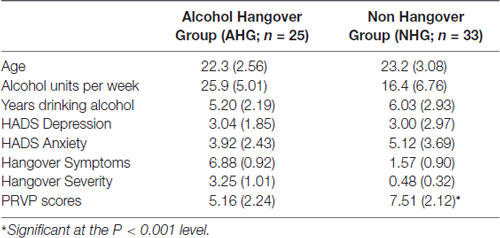A hangover, often abbreviated as HGO, is a common experience for many people who consume alcohol in excess. It refers to the unpleasant physical and mental symptoms that occur after drinking too much alcohol. While most people are familiar with the term, not everyone understands why hangovers happen or how to alleviate their effects. This article will explore the causes behind hangovers, the symptoms they bring, and practical ways to feel better when dealing with one.

What Causes a Hangover?
The exact cause of a hangover is not fully understood, but several factors contribute to its development. These include dehydration, toxins in alcohol, sleep disruption, and individual differences in how the body processes alcohol.
Dehydration
Alcohol is a diuretic, meaning it increases urine production and leads to dehydration. When you drink alcohol, your body loses more fluids than it takes in, which can result in symptoms like dry mouth, thirst, and dizziness. Dehydration alone does not account for all hangover symptoms, but it plays a significant role in making you feel unwell.
Toxins in Alcohol
Alcoholic beverages contain ethanol, which is metabolized by the liver into acetaldehyde. Acetaldehyde is a toxic substance that can cause nausea, headaches, and fatigue. Additionally, alcoholic drinks may contain other compounds called congeners, which are byproducts of fermentation. Darker alcoholic beverages, such as red wine and whiskey, tend to have higher levels of congeners, which can worsen hangover symptoms.
Sleep Disruption
While alcohol might make you feel sleepy at first, it disrupts the quality of your sleep. Drinking interferes with rapid eye movement (REM) sleep, the stage of sleep associated with restorative benefits. As a result, even if you sleep for an adequate amount of time, you may wake up feeling groggy and unrested.
Individual Differences
Not everyone experiences hangovers in the same way. Factors such as genetics, age, gender, and overall health can influence how severely someone feels the effects of a hangover. For example, some people have enzymes that break down alcohol more efficiently, reducing the likelihood of experiencing severe symptoms.
Common Symptoms of a Hangover
Hangovers manifest differently from person to person, but there are several common symptoms that most individuals report. Understanding these symptoms can help you recognize when you’re dealing with a hangover and take steps to address it.
- Headache: One of the most frequent complaints during a hangover is a throbbing headache. This symptom is often linked to dehydration and the dilation of blood vessels caused by alcohol consumption.
- Fatigue: Feeling tired or sluggish is another hallmark of a hangover. The combination of poor sleep quality and the energy required to metabolize alcohol contributes to this exhaustion.
- Nausea and Vomiting: Many people experience stomach discomfort, queasiness, or even vomiting after a night of heavy drinking. This reaction is due to irritation of the stomach lining and the presence of acetaldehydes in the body.
- Dizziness: Alcohol affects the inner ear, which plays a crucial role in maintaining balance. As a result, dizziness and lightheadedness are common hangover symptoms.
- Sensitivity to Light and Sound: Some individuals become highly sensitive to bright lights and loud noises while hungover. This heightened sensitivity is thought to be related to inflammation in the brain caused by alcohol.
- Mood Changes: Hangovers can also affect your emotional state, leading to irritability, anxiety, or depression. These mood swings are likely connected to changes in neurotransmitter levels triggered by alcohol consumption.
Ways to Feel Better During a Hangover
While there is no instant cure for a hangover, certain strategies can help alleviate symptoms and speed up recovery. Below are some effective methods to feel better when dealing with a hangover.
Rehydrate Your Body
Since dehydration is a major contributor to hangover symptoms, replenishing lost fluids should be a priority. Drinking water throughout the day can help combat dry mouth, thirst, and headaches. Electrolyte-rich drinks, such as coconut water or sports beverages, can also restore essential minerals lost through urination.
Eat Nutritious Food
Eating a balanced meal can provide your body with the nutrients it needs to recover. Focus on foods that are easy to digest, such as fruits, vegetables, whole grains, and lean proteins. Bananas, for instance, are rich in potassium, which can counteract electrolyte imbalances caused by alcohol. Avoid greasy or heavy meals, as they may further upset your stomach.
Get Rest
If possible, allow yourself extra time to rest and recover. Sleep gives your body a chance to repair itself and flush out toxins. If you’re unable to nap, simply lying down in a quiet, dark room can help reduce feelings of fatigue and sensitivity to light.
Take Over-the-Counter Medications
Over-the-counter pain relievers, such as ibuprofen or acetaminophen, can help alleviate headaches and muscle aches. However, use caution when taking medications, as some can irritate the stomach or interact negatively with alcohol still present in your system. Always follow the recommended dosage instructions.
Engage in Light Physical Activity
Gentle exercise, such as walking or stretching, can boost circulation and improve your mood. Physical activity may also encourage sweating, which helps eliminate toxins from your body. Just be sure not to overexert yourself, as intense workouts could exacerbate dehydration and fatigue.
Drink Herbal Teas
Certain herbal teas, such as ginger tea or peppermint tea, can soothe an upset stomach and promote relaxation. Ginger, in particular, has anti-inflammatory properties that may ease nausea and digestive discomfort. Chamomile tea is another excellent option for calming nerves and promoting better sleep.
Avoid More Alcohol
Some people believe that having a small amount of alcohol, often referred to as a “hair of the dog,” can relieve hangover symptoms. However, this approach only delays the inevitable and prolongs the recovery process. Instead, focus on giving your body time to detoxify naturally.
Preventing Future Hangovers
In addition to managing current hangover symptoms, it’s important to adopt habits that minimize the risk of future hangovers. Prevention is always preferable to treatment, and the following tips can help you enjoy alcohol responsibly without suffering the next day.
Pace Yourself
Drinking too quickly overwhelms your liver’s ability to process alcohol, increasing the likelihood of a hangover. Sip your drinks slowly and alternate alcoholic beverages with glasses of water to stay hydrated.
Choose Clear Liquids
As mentioned earlier, darker alcoholic beverages contain higher concentrations of congeners, which can intensify hangover symptoms. Opt for clear liquors like vodka or gin, and choose lighter-colored beers and wines whenever possible.
Eat Before Drinking
Having food in your stomach before consuming alcohol slows its absorption into the bloodstream. A meal rich in carbohydrates, proteins, and healthy fats provides a protective barrier that reduces the impact of alcohol on your system.
Set Limits
Knowing your limits and sticking to them is key to avoiding hangovers. Decide in advance how many drinks you’ll have and resist peer pressure to exceed that number. Using smaller glasses or diluting cocktails with non-alcoholic mixers can also help control your intake.
Listen to Your Body
Everyone reacts differently to alcohol, so pay attention to how your body responds. If you notice that certain types of alcohol consistently trigger worse hangovers, consider avoiding them altogether. Similarly, if you find yourself feeling unwell after just a few drinks, it may be wise to cut back.





